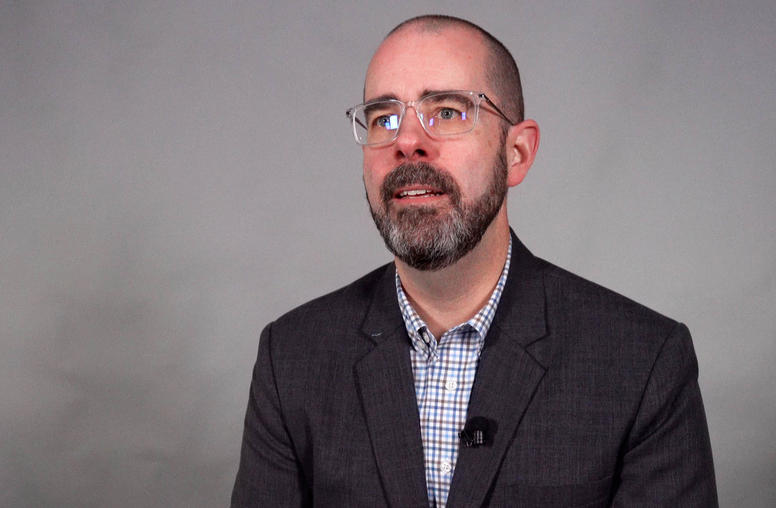Eye on USIP's Religion and Peacemaking Center
Religion is often seen as the cause of strife around the globe, but in reality, it can provide the foundation for what helps to end conflict. USIP’s work, from Indonesia to Pakistan, demonstrates that religion can play a positive role in managing conflict. USIP’s David Smock, senior vice president for the Centers of Innovation, explores the issue in this brief question-and-answer.
November 8, 2011
Religion is often seen as the cause of strife around the globe, but in reality, it can provide the foundation for what helps to end conflict. USIP’s work, from Indonesia to Pakistan, demonstrates that religion can play a positive role in managing conflict. USIP’s David Smock, senior vice president for the Centers of Innovation, explores the issue in this brief question-and-answer.
- Throughout history, religion has been blamed for causing numerous violent conflicts – even as justification for violence and repression. Is it fair to blame “religion” for violent conflict?
- How has this informed the work of USIP’s Religion and Peacemaking Center?
- What are some of the specific examples of how USIP’s Religion and Peacemaking Center has helped define and shape the field of religious peacebuilding?
- What is the history of the Center? How did it come to be?
- What do you consider to be the Center’s greatest achievements?
Throughout history, religion has been blamed for causing numerous violent conflicts – even as justification for violence and repression. Is it fair to blame “religion” for violent conflict?
There is no doubt that religion is a factor in many violent conflicts and awareness of this has increased since 9/11. But to say that religion is a factor in conflict does not mean that religion is the principal cause of so many conflicts. Many conflicts that are attributed to religion are more fundamentally conflicts over resources and political power. Moreover, religious identity frequently overlaps with other primordial identities, like ethnicity, and a conflict may be more basically between two or more ethnic groups that just happen to be differentiated by religion as well.
The second failure of this generalization about religion as the cause of conflict is that it does not recognize that religious leaders and institutions can also bring about peace, particularly in instances where religion is one of the causal factors in the conflict. The contribution that religion can make to peacebuilding should not be neglected or underestimated.
How has this informed the work of USIP’s Religion and Peacemaking Center?
The Center has emphasized the positive role that religion can play in peacebuilding. The strategy of the Center is to pick a conflict zone where we think we can make a contribution. We then identify a local partner with whom we can work. Then we work out a plan of action jointly with the partner and provide financial assistance to the partner. The local partner assumes major responsibility for taking action on the ground. We organize most of these projects on an interfaith or ecumenical basis. We have been active with local partners in Indonesia, Philippines, Nigeria, Colombia, Iraq, Sudan, Sri Lanka, Pakistan and Afghanistan.
What are some of the specific examples of how USIP’s Religion and Peacemaking Center has helped define and shape the field of religious peacebuilding?
Over the last decade we have been among the most active organization in this field, particularly in collaborating with local partners and identifying new methodologies. In addition to joining with American partners to advance this field, we have also encouraged the State Department to become more effectively engaged with religious communities in its work abroad, to recognize the importance of religious peacebuilding and to view religion as a potential positive rather than only a negative influence in international affairs.
What is the history of the Center? How did it come to be?
In the early 1990s, USIP established a program entitled Religion, Ethics, and Human Rights. It organized several working groups focused on conflict zones where religion is among the causal factors. The program produced several publications based on the deliberations of the working groups. When the director of the program retired, we rethought what kind of involvement USIP should have in the field of religion. We decided to be more activist and less research oriented and to emphasize the positive side of religion rather than the negative, and from that we launched the Religion and Peacemaking Center.
What do you consider to be the Center’s greatest achievements?
Working with our Nigerian partner, the Inter Faith Mediation Centre, we have been able to make significant contributions to religious peace in various parts of Nigeria, as well as producing two very instructive DVDs about the methodologies of religious peacebuilding. In Sri Lanka we have worked for several years with the Centre for Peacebuilding and Reconciliation to train leaders of Sri Lanka’s four faith communities to engage in interfaith peacebuilding and to encourage their local peacemaking efforts. In Pakistan we have worked with the Pakistan Centre for Peace and Conflict Resolution to write a textbook in Urdu on peace studies based on Islamic principles for use both in religious and secular schools.



